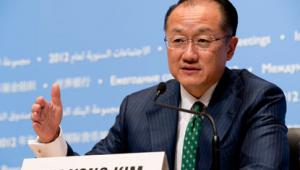Indonesia_istock.jpg

Jakarta, Indonesia
In December, the bank welcomed plans to increase public spending in the southeast Asian country, which it said could boost the economy after forest fires cost the country $16bn in 2015 and caused the economy to contract by 1.9%.
Three months on, the bank confirmed that plans to commit more public funds to infrastructure, health and social assistance have paid off.
Investments by Indonesia’s central government increased 42% year-on-year in 2015, pushing the bank’s growth projections up to 5.1% this year. However, both consumer spending and private sector investment remain subdued.
“Growth below 6% is insufficient to create enough jobs for the 3 million Indonesians entering the workforce each year,” explained Rodrigo Chaves, World Bank country director for Indonesia.
“A more solid recovery depends on private sector investment, which requires sustained and comprehensive regulatory reforms to improve the business climate.”
The International Monetary Fund also said today that Indonesia’s growth will accelerate somewhat thanks to higher public investments and improved sentiment towards reforms in southeast Asia’s largest economy. However, the fund put growth slightly lower, at 4.9% this year.
Both the bank and the fund highlighted the risks posed by the persistent decline in commodity prices, and the bank urged the country to diversify its economy to the manufacturing and services sectors, in particular tourism.
However, it noted that manufacturing has also been hard hit, with exports falling by 13.4% year-on-year, and infrastructure development for tourism insufficient.
Ndiame Diop, World Bank lead economist for Indonesia, said the country’s cumbersome and restrictive regulations are constraining these sectors and hampering their potential to significantly improve growth.
“While the government has proposed bold reforms in the last six months, more action will hopefully tip investor confidence and boost investment,” he said.
More private sector investment would help counter the limitations in revenue collection imposed by falling oil and gas reserves, the bank said.
The government is also undertaking tax policy reforms, a strengthening of tax administration and investments in IT and data management in order to increase revenue.
But the bank warned the impact of these reforms will not be felt overnight and that private sector investment is needed to complement public spending and policy changes.













